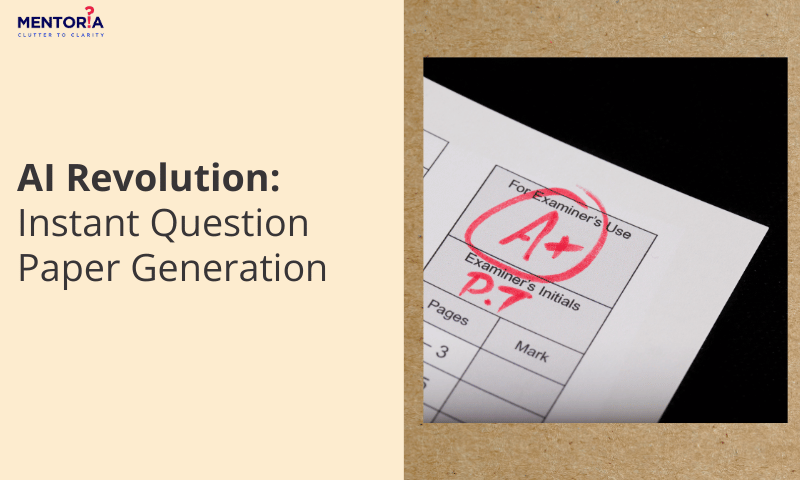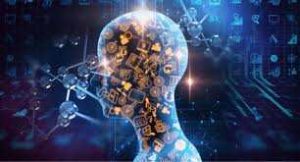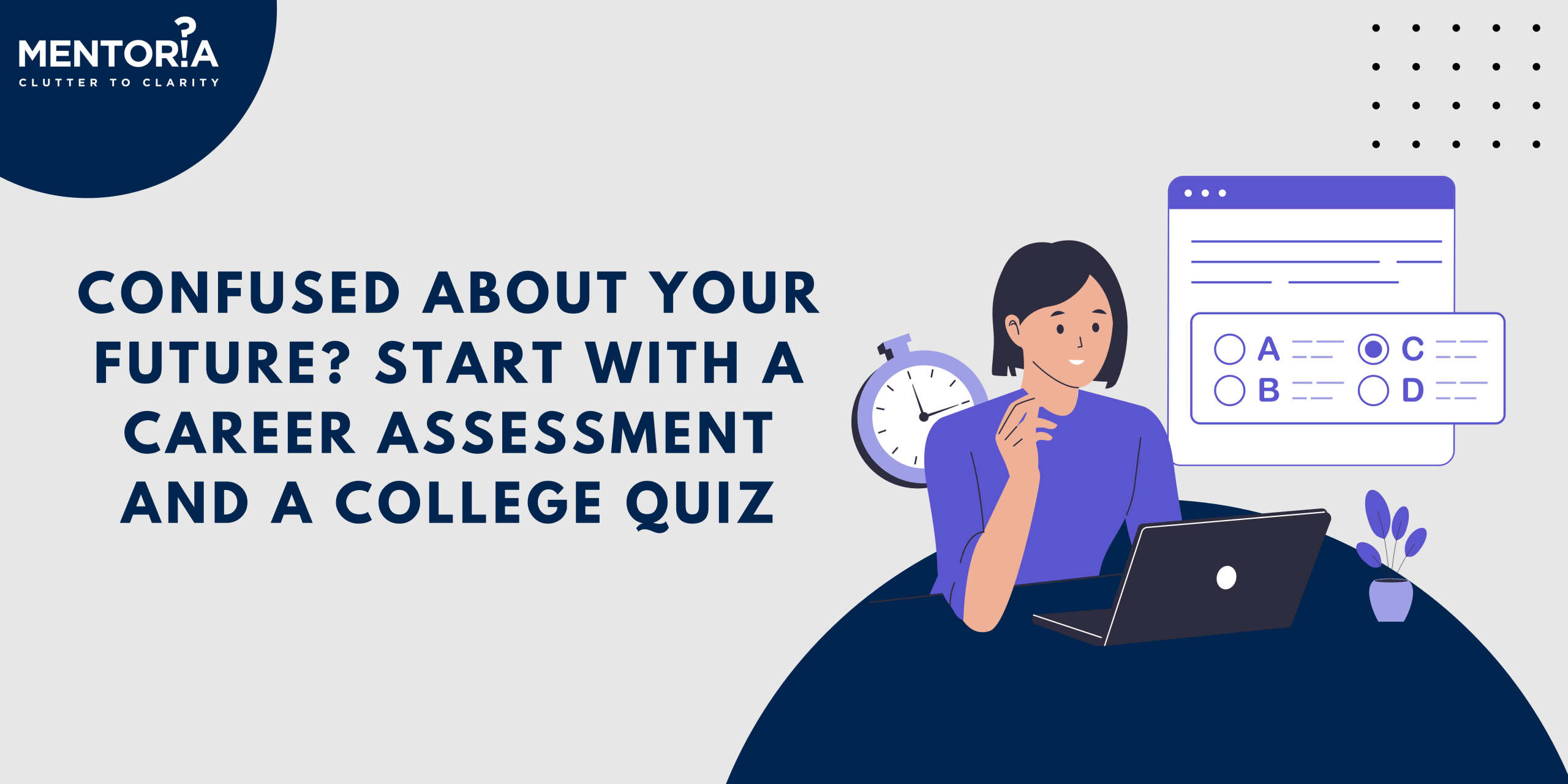AI Revolution: Instant Question Paper Generation

Welcome to a world where your toughest exam questions are no longer crafted by human hands, but by lines of code and algorithms. The AI revolution is here, and it’s rewriting the rules of education as we know them. Imagine a classroom where teachers are freed from hours of question paper creation, where students face challenges never seen before, and where the very nature of examinations is transforming before our eyes. This isn’t science fiction; it’s the dawn of a new era in learning, and it’s all thanks to Instant Question Paper Generation. Strap in, because the future of education is getting a digital makeover, and it’s bound to leave you both awestruck and wondering what’s next.
The Age-Old Challenge Of Question Paper Creation
We’ve all been there: stacks of textbooks, notebooks filled with lesson plans, and the inevitable headache that comes with crafting the perfect set of questions for an exam or quiz. It’s a time-consuming and often monotonous task, leaving educators yearning for more time to focus on teaching and nurturing their students’ growth.
AI Steps In: The Game Changer
Enter Artificial Intelligence, our trusty sidekick in the digital age. AI is not just about chatbots and virtual assistants; it’s a powerful tool capable of streamlining a wide range of tasks. One such task is instant question paper generation.
How AI Generates Questions Instantly
- Text Analysis: AI algorithms excel at comprehensively analysing educational materials like textbooks and lecture notes. They can identify key concepts, extract relevant facts, and pinpoint the crucial topics covered in the content. This analysis serves as the foundation for generating questions that align perfectly with the curriculum, ensuring that assessments are both meaningful and accurate. Imagine an AI algorithm analysing a history textbook. It identifies that the key concept is “World War II.” From the text, it extracts relevant facts like “1939-1945,” “Allied Forces,” and “Axis Powers.” Using this analysis, AI generates questions like “What were the years of World War II?” or “Name two countries that were part of the Allied Forces during World War II?”
- Question Templates: Educators can create question templates specifying the format they want (e.g., multiple-choice, short answer, essay). These templates can encompass various formats, including multiple-choice, short answer, and essay questions. AI then takes these templates and fills them with content derived from the text analysis, allowing educators to maintain control over the question structure while benefiting from AI’s content-generation capabilities. An educator sets up a template for a multiple-choice question: “Who was the first President of the United States?” The AI takes this template and fills it with relevant content, generating questions like “Who was the first President of France?” or “Who was the first Prime Minister of India?” while maintaining the multiple-choice format.
- Adaptive Difficulty: AI’s adaptive capabilities are a game-changer in assessments. By analysing the complexity of the content and considering the intended grade level, AI can adjust question difficulty dynamically. This ensures that each student faces questions that are appropriately challenging, promoting fair and accurate evaluations of their knowledge and skills. For instance, “Find the derivative of f(x) = x^3” for advanced students and “Find the derivative of f(x) = 2x” for beginners.
- Randomisation: To maintain exam integrity and discourage cheating, AI can randomise not only the order of questions but also the answer choices within multiple-choice questions. One student might see, “Who was the first President of the United States?” with options A) George Washington, B) Thomas Jefferson, and C) Benjamin Franklin. Another gets the same question but with the choices shuffled. This randomisation means that each student receives a unique exam, reducing the effectiveness of cheating strategies like copying from peers.
- Language Variations: In our globally interconnected world, AI can break down language barriers in education. It can generate questions in multiple languages, catering to the diverse linguistic backgrounds of students. For an English assessment, it generates questions in Spanish as well. For example, “Translate the following English sentence to Spanish.” This inclusivity promotes equal access to educational assessments for all, fostering a more equitable learning environment.
- Feedback Generation: AI doesn’t stop at question creation; it extends its capabilities to providing valuable feedback. After students complete assessments, AI can generate model answers and explanations for each question. For instance, after a physics quiz, AI provides feedback. For a question on Newton’s laws, it generates a model answer explaining the laws and why a specific choice was correct or incorrect. This feedback aids students in understanding where they went wrong, facilitating the learning process. Moreover, it saves educators time as they don’t need to individually grade and provide feedback for each student’s assessment, allowing them to focus on targeted instructional support instead.
Benefits Of Instant Question Paper Generation With AI
- Time Efficiency: Traditionally, crafting questions for assessments consumed an enormous amount of educators’ time. AI steps in as a time-saving superhero. It can swiftly generate question papers, potentially within minutes, a task that would otherwise require hours of manual work. This newfound efficiency allows educators to allocate their precious time to more critical aspects of teaching, such as personalised instruction, student support, and curriculum development.
- Consistency: Human error and bias can inadvertently creep into manually crafted questions, leading to inconsistencies in phrasing and difficulty levels. AI, on the other hand, adheres to a set of predetermined rules and standards. This consistency ensures that all students face an equitable assessment, with questions that are clear, unbiased, and aligned with the intended learning outcomes, regardless of the educator responsible for creating the assessment.
- Adaptability: AI is a versatile tool that transcends the boundaries of subjects and grade levels. It can adapt to a wide spectrum of educational needs, from elementary mathematics to advanced physics, and from primary grades to university-level courses. Educators can rely on AI to generate questions across a range of subjects, making it a valuable resource for instructors in various fields of study. This adaptability fosters innovation in assessment techniques and encourages educators to explore diverse teaching approaches.
- Reduced Workload: The workload of educators extends far beyond question paper creation. Lesson planning, classroom management, student support, and professional development all demand their time and attention. With AI-generated questions handling a significant portion of the assessment process, educators can breathe easier. They can redirect their energies towards delivering high-quality education, nurturing students’ growth, and refining their teaching strategies, ultimately leading to a more fulfilling and effective educational experience for both educators and learners alike.
The Student Perspective: Engaging Assessments
Now, let’s shift our focus to the students. After all, they’re at the heart of education, and assessments play a pivotal role in their learning journey.
- Interactive Learning: AI-generated questions can be designed to be interactive and visually engaging, making assessments more enjoyable for students.
- Instant Feedback: With AI-generated assessments, students can receive instant feedback, allowing them to identify their strengths and areas that need improvement.
- Personalised Learning: AI can adapt assessments to each student’s level, ensuring that they receive questions that challenge them appropriately.
- Accessibility: AI can create assessments that are accessible to students with disabilities, promoting inclusivity in education.
Challenges And Considerations
While the benefits of AI-generated question papers are undeniable, there are some challenges and considerations to keep in mind:
- Quality Control: Educators must ensure that the AI-generated questions align with the curriculum and learning objectives.
- Data Privacy: Handling student data requires strict adherence to data privacy regulations, especially when using AI.
- Teacher Expertise: Educators should have a good understanding of AI tools to make the most of them in the classroom.
- Technology Adoption: Some educators may be resistant to integrating AI into their teaching practices. Proper training and support are essential for smooth adoption.
The Road Ahead: AI In Education
Instant question paper generation with AI is just the tip of the iceberg when it comes to AI’s potential in education. As AI technology continues to evolve, we can expect to see more innovations that enhance the learning experience:
- Personalised Learning Paths: AI can create personalised learning paths for students, identifying their strengths and weaknesses and recommending tailored resources.
- Smart Content Delivery: AI-powered content delivery systems can adapt to students’ learning styles and preferences, making learning more engaging.
- Real-time Assessment: AI can provide real-time feedback on student performance, allowing educators to intervene promptly when needed.
- Language Translation: AI can break down language barriers, enabling students to access educational content in their preferred language.
Mentoria’s Role In Educational Innovation
Mentoria, a pioneer in educational technology, understands the evolving landscape of assessment and education. We are committed to leveraging cutting-edge AI solutions to enhance the learning experience. Our platform not only embraces AI-driven assessment tools but also provides comprehensive support to educators, students, and institutions.
By partnering with Mentoria, educators gain access to a wealth of resources and expertise in implementing AI-based solutions effectively. We offer training, guidance, and a collaborative community to help educators harness the full potential of AI for assessment purposes. Our mission is to empower educators to navigate the future of education seamlessly.









